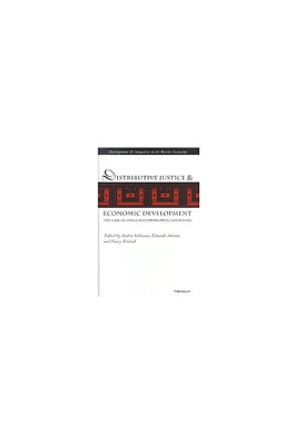Description
This book analyzes Chile's political economy and its attempt to build a market society in a highly inegalitarian country.
About the Author
Andres Solimano is founder and Chairman of the International Center for Globalization and Development. He holds a Ph.D. in Economics from the Massachusetts Institute of Technology. Dr Solimano was a Regional Advisor at the United Nations Economic Commission for Latin America and the Caribbean, Country Director at the World Bank and Executive Director at the Inter-American Development Bank. He was also Director of the project on International Mobility of Talent with the United Nations University-World Institute of Economic Research and served as Executive Director for Chile at the Board of the Inter-American Development Bank. Dr Solimano has written extensively on international migration, talent mobility, growth, inequality, political economy, macroeconomics and international development. His latest book is International Migration in the Age of Crisis and Globalization (Cambridge University Press, 2010).
Reviews
'This well-balanced and incisive account of Chile's economic experiment offers much food for thought for both the economist and those interested in the politics and economics in Latin America and the developing world more generally.' Tony Addison, United Nations University World Institute for Development Economics Research
'A great and gifted analysis of how neoliberal policies take control of a country's political economy and then twist it into shapes that defy democratic and rational response. It should be of intense interest to a wide range of scholars.' Alice Amsden, Massachusetts Institute of Technology
'This book is [an] exceptional work, which analyzes in-depth the Chilean transition, the country's political economy, and its relation to the neoliberal model in a demonstration of outstanding knowledge. It is recommended not only for scholars and readers who are interested in the development of Chile after the Pinochet regime, but for all those who work on broader issues of political transitions and political economy as well as those interested in pitfalls of the neoliberal model.' Josep Borrell, President, European University Institute
'This highly informed and judicious study of the turbulent history of Chile in the past half-century provides much insight into the economic and sociopolitical models that were pursued, or imposed, their intricate consequences, their achievements and failures, and the lessons they suggest for Chile itself and no less for others.' Noam Chomsky, Massachusetts Institute of Technology
'Chile is one of the few Latin American countries whose growth performance has improved, compared to its previous historical record, during and after the market reforms of the Washington consensus. Andres Solimano's insightful analysis is essential reading for understanding the success of the 'Chilean model' and also its severe shortcomings.' Jaime Ros, University of Notre Dame
'In Chile and the Neoliberal Trap, Solimano provides a penetrating study of Chile's economy, but he also ventures beyond to critique social indicators, poverty and inequality, cultural trends, and the nature of Chilean democracy. A broad readership - policy makers, academics, and the general public - will benefit from this interdisciplinary approach.' Barbara Stallings, Brown University
'This book provides a broad perspective involving the multiple dimensions of the imposition and deepening of a kind of dehumanizing and depredatory variety of capitalism such as the neoliberal model applied in Chile. The book will be an indispensable tool to understand the roots of the current social protest movements in Chile. No doubt [it] will contribute to undermining the hegemony of neoliberal economics in my country.' Camila Vallejo, named The Guardian's 2011 'Person of the Year'
Book Information
ISBN 9781107003545
Author Andres Solimano
Format Hardback
Page Count 182
Imprint Cambridge University Press
Publisher Cambridge University Press
Weight(grams) 380g
Dimensions(mm) 235mm * 160mm * 16mm








